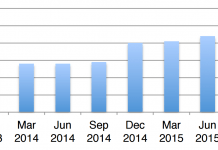![]() When I worked on The Silicon Jungle, I didn’t just benefit from a keen-eyed copy editor at Ballantine Books.
When I worked on The Silicon Jungle, I didn’t just benefit from a keen-eyed copy editor at Ballantine Books.
Sentence by sentence, a computer consultant vetted me.
A few years later I published another popular-level technical book at another big house. The amount spent on professional fact-checking? $0, despite the intricacies of the topic. Had I written that Marconi invented integrated circuits, it just might have shown up in the book despite the literary talents of the brilliant development editor. Yes, I’m indulging in hyperbole. But you get the idea.
Unfortunately, the second house is far more typical of publishing these days, with book contracts merely saying that the writers are responsible for accuracy.
Publishers worry about libel and other legal issues, but they are far more laid back about nonpocketbook matters of fact.
Good thing, too, from a strictly commercial perspective—given all the dodgy crap out there on topics such as diets and climate change. Care even the slightest about accuracy in those cases, and more than a few bestsellers won’t ever hit the stores, especially campaign memoirs.
Imagine my elation, then, when I learned that a new imprint for now plans to set aside money specifically to pay for fact-checkers. Mind you, I have not fact-checked the following passage, but here’s the word from Vulture by way of my friend Nate over at Ink, Bits & Pixels:
“In September, Tim Duggan Books, the editor’s eponymous new imprint under the Crown Publishing Group, will be the first ever to offer fact-checking as a service paid for by the publisher. Duggan declined to discuss his imprint yet, and one agent describes the fact-checking policy as ‘in flux.’ But for months, Duggan has been quietly promoting in-house fact-checking as a special feature of his new shop. New York Times reporter Scott Shane confirms that his book, Objective Troy—the second on Duggan’s list—was fact-checked by Andy Young, an experienced freelancer hired by Crown.”
Coincidentally or not, Crown itself is part of Penguin Random House, and in a previous incarnation Random owned Ballantine, the publisher of The Silicon Jungle, my mix of computer lore and how-tos. While all the big publishes could do more fact-checking, I’d suspect that Random House’s record is better than most.
The computer consultant’s main role was that of a development editor, as opposed to someone hired specifically as a fact checker. But the result was still the same.
I especially like the idea of specialized fact-checkers intimately familiar with the topic at hand. That’s what the development editor was.
Now let’s hope that PRH and others in the Big Four will go on to follow the Tim Duggan example, big time. I’m picking on the giants because, more than the smaller houses, they can afford thorough fact-checking of at least major books. It’s a good way for them to add value and try to stand apart from the herd, beyond just lavishing more on marketing.
That said, fact checking should be essential at houses of any size—ideally through the hiring of full-strength pros for that specific task. Perhaps somewhat fewer books would reach the racks, but those that did would be more trustworthy, and books as a medium would benefit. You don’t have to be a giant to be gung ho on accuracy. Certain smaller and medium-sized publishers, especially in technical areas (O’Reilly, for example), can care more than the big trade houses do.
Close to home, I’d love to be able to hire fact-checkers for TeleRead—we are all sinners to some extent, regardless of our intentions—but meanwhile interactivity serves as a substitute of sorts. Yes, I’m talking about you, the readers of this blog. Editor-in-Chief Juli Monroe and I encourage you to come forward with corrections for the comments sidebar on the right of the home page. In that sense you will contribute to the value of TeleRead as a source of news and opinion, in addition to augmenting our insights with your own.
Now, let’s look ahead to the era of e-books offering far greater annotative capabilities for readers than do books nowadays.
Could it be that today’s fact-checkers will eventually evolve into moderators as well—in-house crusaders for accuracy not just during the editing of a book, but also after publication? No, I don’t think every publisher could afford for this to happen for every book. But the Big Four certainly could invest in such an approach more often than smaller ones did, and they could even promote it aggressively. Buy a book on such and such a topic from us, and if there’s anything wrong, chances are above average that you’ll learn about it.
If smaller houses and self-publishers can do the same, so much the better—especially since the book industry mustn’t just be the Big Four, if we’re to benefit from a rich assortment of titles. In fact, for now, the smaller publishers and DIY people may actually enjoy the upper hand on fact-checking matters, as long as they have the resources. If you’re a minnow, you don’t need to gain the approval of committees to hire a fact-checker. You just do it.
As a reader, author or publisher, what’s your own take on the fact-checking issue? Does it bother you that so many publishers, especially the big ones rich enough to pay multimillion-dollar advances, are too cavalier about the facts?
A good example of the way some high lit types perceive fact-checkers (and women), whatever the kind of publishing: In the new novel The Book of Numbers, the narrator writes: “The Factchecker changed by the party, the season. Any fuckable female publishing professional could be The Factchecker—if it could be proven that she was between the ages of 18 and 26, and that she had fucked precisely zero people since arriving in NY.”
Coming in the near future from Distributed Proofreaders and Project Gutenberg: A public domain edition of The Silicon Jungle, written on a Kaypro and originally published in 1985. Among other things, I write about the 300-baud trans-Pacific computer hookup between Arthur C. Clarke and MGM/UA director Peter Hyams during the scriptwriting of 2010. I helped the two catch up with Kaypros and provided technical assistance.
And speaking of The Jungle: Would any TeleRead community members like to volunteer and sleuth around and locate the artist who created the memorable cover of The Jungle? Without permission from the artist or the estate involved, the DP/PG edition won’t be able to use the cover due to the uncertainties created by copyright law. I’ve already checked with PRH. No luck. Remember, this is a public domain edition. In effect you’ll also be volunteering for PG/DP.
Not just for nonfiction only: Yes, background facts matter in fiction as well. You don’t want your detective hero driving the wrong way up a street in Manhattan, do you—especially when so many book reviewers live there.


































Maybe publishing could hire the fact-checkers no longer employed by news companies?
Snark aside, this is a serious problem for the whole of the legacy publishing industry. We can tell just how far the industry has fallen when a new imprint boasts of having fact checkers and that counts as both a marketable feature and as news. In any reasonable industry, one would assume that all companies would employ fact checkers before disseminating information.
Alas, publishing.
The lack of fact checking is a major problem but so is hiring the wrong editor for the wrong purpose. I was recently hired to copyedit a book. After editing the first chapter, I realized that what this book needed was a developmental editor with very specialized knowledge (copyeditors are language/grammar experts, not subject-matter experts; developmental editors are supposed to have subject-matter expertise). The press felt that copyediting would be sufficient (it wouldn’t). In this instance, I returned the project to the press because none of my editors had the expertise required to deal with the subject matter as required by us, even if not by the press. As I told the press, we are professional editors and proud of the quality of our editing. Consequently, we could not continue with the project because no one would be proud of the result.
If more editors took that view, perhaps developmental editing would occur more often. But since the consolidation in publishing of the 1990s, many of the services that publishers used to provide have gone the way of the dinosaurs as a matter of cost control. Random House under Bennett Cerf produced editorially great books; today it is hit and miss.